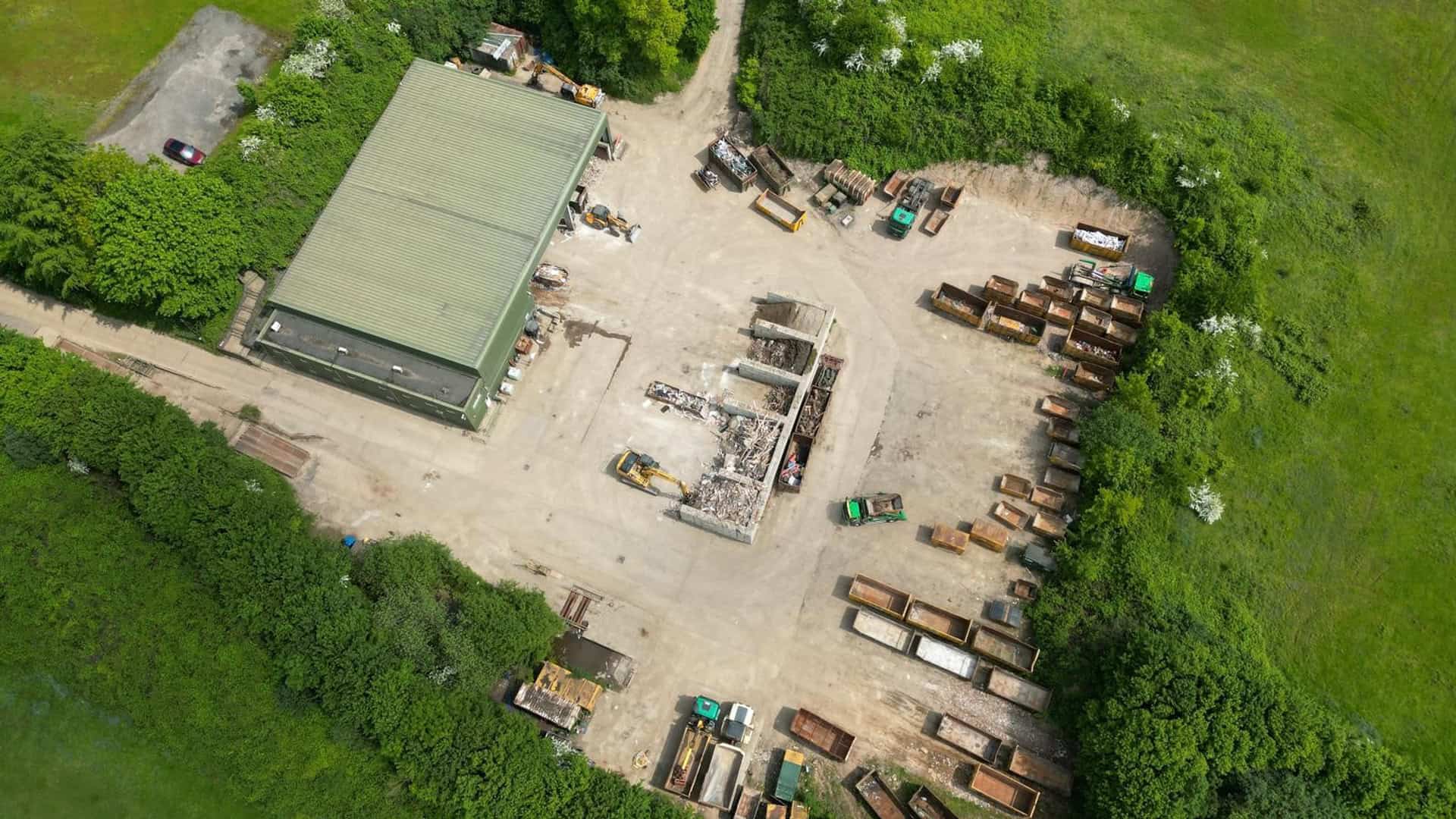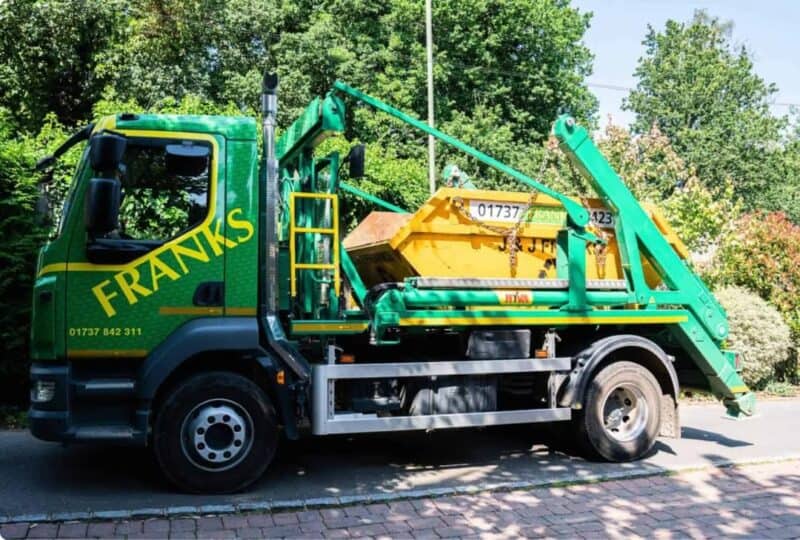In the realm of modern waste management, the role of a waste transfer station is pivotal. These facilities serve as essential hubs where waste is temporarily held, sorted and processed before being transported to its final destination. By optimising waste collection, reducing landfill dependency and supporting recycling efforts, waste transfer stations contribute significantly to sustainable waste management. Our fully licensed waste transfer station at J&J Franks exemplifies our commitment to efficient and compliant waste disposal solutions for businesses and tradespeople.
Enhancing efficiency in waste collection and disposal
A waste transfer station plays a vital role in streamlining waste collection and disposal, making the process more efficient and environmentally responsible. These facilities act as centralised collection points where waste from multiple sources is gathered before being transported to landfill sites, recycling facilities or other treatment plants.
One of the main advantages of waste transfer stations is the reduction in transportation times and fuel consumption. Instead of collection vehicles making long journeys to final disposal sites, they can offload waste at the transfer station. From there, larger, more efficient transport vehicles carry waste in bulk, cutting down on overall travel distances and reducing emissions.
Additionally, waste transfer stations improve the sorting and processing of materials, ensuring that recyclable items are separated efficiently. By consolidating and categorising waste at an early stage, these stations enable more effective recycling, diverting significant amounts of waste away from landfills. Our transfer station at J&j Franks optimises waste processing, ensuring that as much material as possible is repurposed.
Reducing landfill dependency and promoting recycling
One of the biggest challenges in waste management is reducing reliance on landfills. With landfill capacity decreasing and environmental regulations becoming stricter, businesses must seek alternative disposal solutions. A waste transfer station plays a key role in addressing this issue by diverting waste from landfills and promoting recycling initiatives.
At a transfer station, waste is carefully assessed and materials that can be recycled (such as plastics, metals and paper) are extracted for further processing. This not only reduces landfill use but also supports circular economy principles by keeping valuable resources in circulation. By ensuring that recyclable materials are properly handled, transfer stations contribute to lowering overall waste generation and conserving natural resources.
J&J Franks is committed to helping businesses reduce their landfill dependency through our waste transfer station. By efficiently managing waste streams and ensuring that recyclable materials are diverted from disposal, we help clients meet sustainability targets while complying with waste management regulations.
Supporting environmental sustainability through Waste Transfer Stations
Environmental sustainability is at the forefront of modern waste management and waste transfer stations contribute significantly to reducing the ecological impact of waste disposal. One of the primary ways they achieve this is by minimising greenhouse gas emissions. By reducing the number of waste collection vehicles travelling to distant landfill sites, transfer stations cut down on fuel consumption and carbon emissions, promoting cleaner air and a reduced carbon footprint.
Furthermore, the sorting and processing capabilities of waste transfer stations ensure that hazardous and non-recyclable materials are handled appropriately. Proper management prevents harmful substances from entering landfills, reducing the risk of soil and water contamination. This not only protects local ecosystems but also contributes to safer waste management practices across the industry.
We place a strong emphasis on responsible waste handling at J&J Franks. Our waste transfer station is designed to ensure that all waste is processed efficiently, with a focus on minimising environmental impact. By prioritising recycling and sustainable waste management, we help businesses and communities take an eco-conscious approach to waste disposal.
The benefits of Waste Transfer Stations for businesses and local communities
A waste transfer station provides numerous benefits for businesses, local authorities and the wider community. One of the key advantages is cost efficiency. By reducing the distance that waste collection vehicles need to travel, businesses can lower fuel costs and increase operational efficiency. Additionally, access to a well-managed transfer station allows businesses to comply with waste disposal regulations more easily, avoiding potential fines or penalties.
For local communities, waste transfer stations play a crucial role in improving public waste disposal services. These facilities offer a convenient drop-off point for a variety of waste types, including bulky items and recyclables, making it easier for residents and businesses to dispose of materials responsibly. They also help maintain cleaner urban environments by reducing illegal dumping and ensuring waste is managed correctly.
Waste Transfer Stations: The cornerstone of modern waste management
Waste transfer stations are a crucial component of modern waste management, helping to improve efficiency, reduce landfill dependency and support recycling initiatives. By centralising waste collection and optimising sorting and processing, these facilities make waste management more cost-effective and environmentally responsible.
At J&J Franks, we are committed to delivering high-quality waste removal services through our waste transfer station, ensuring that businesses and communities have access to sustainable waste solutions. By embracing responsible waste management practices, we all collectively work towards a future that prioritises environmental sustainability and resource efficiency.








